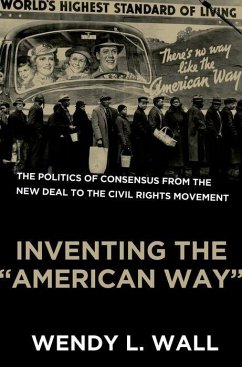In the wake of World War II, Americans developed an unusually deep and all-encompassing national unity, as postwar affluence and the Cold War combined to naturally produce a remarkable level of agreement about the nation's core values. Or so the story has long been told. Inventing the "American Way" challenges this vision of inevitable consensus. Americans, as Wendy Wall argues in this innovative book, were united, not so much by identical beliefs, as by a shared conviction that a distinctive "American Way" existed and that the affirmation of such common ground was essential to the future of the nation. Moreover, the roots of consensus politics lie not in the Cold War era, but in the turbulent decade that preceded U.S. entry into World War II. The social and economic chaos of the Depression years alarmed a diverse array of groups, as did the rise of two "alien" ideologies: fascism and communism. In this context, Americans of divergent backgrounds and beliefs seized on the notion of a unifying "American Way" and sought to convince their fellow citizens of its merits.








